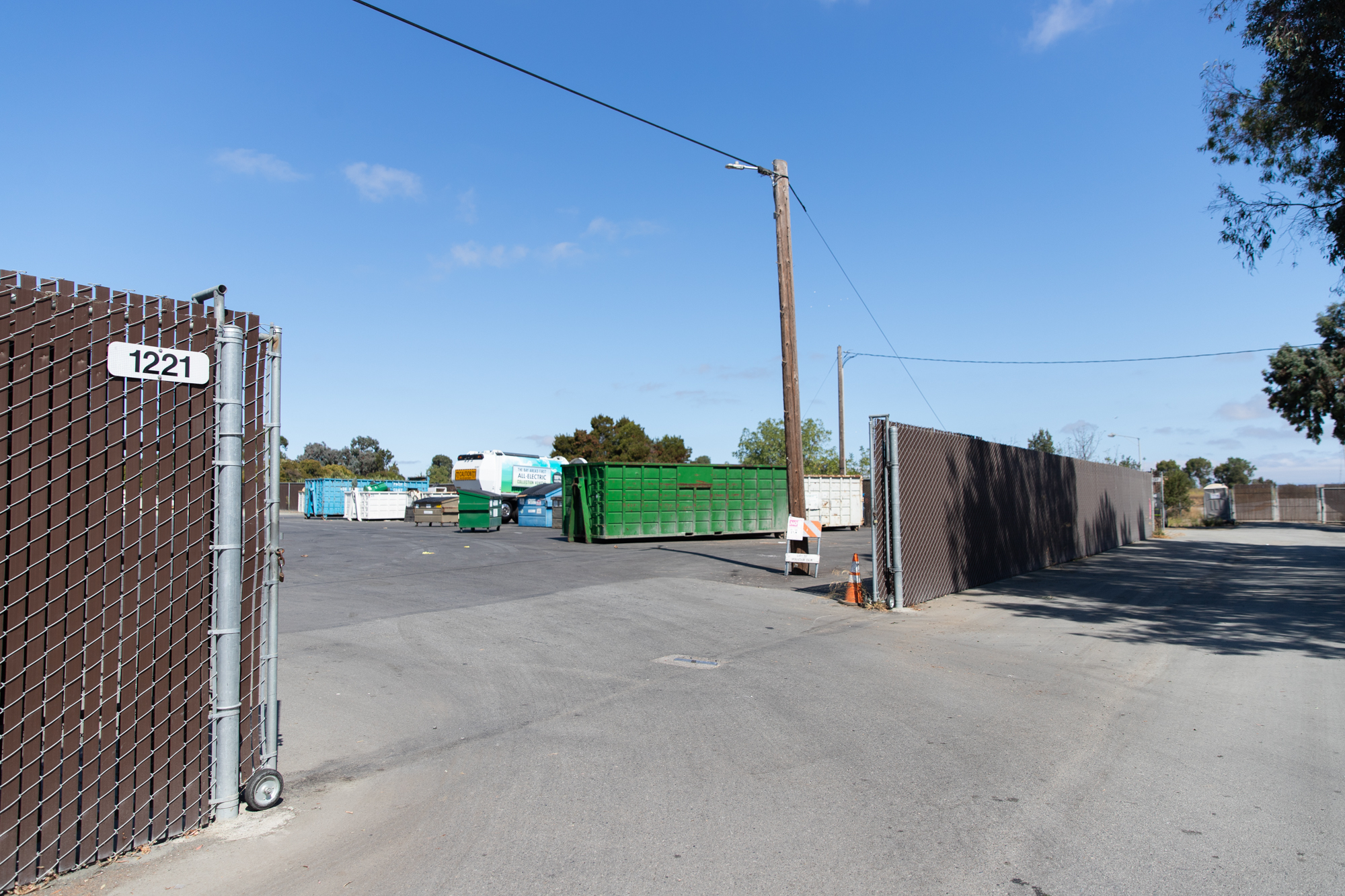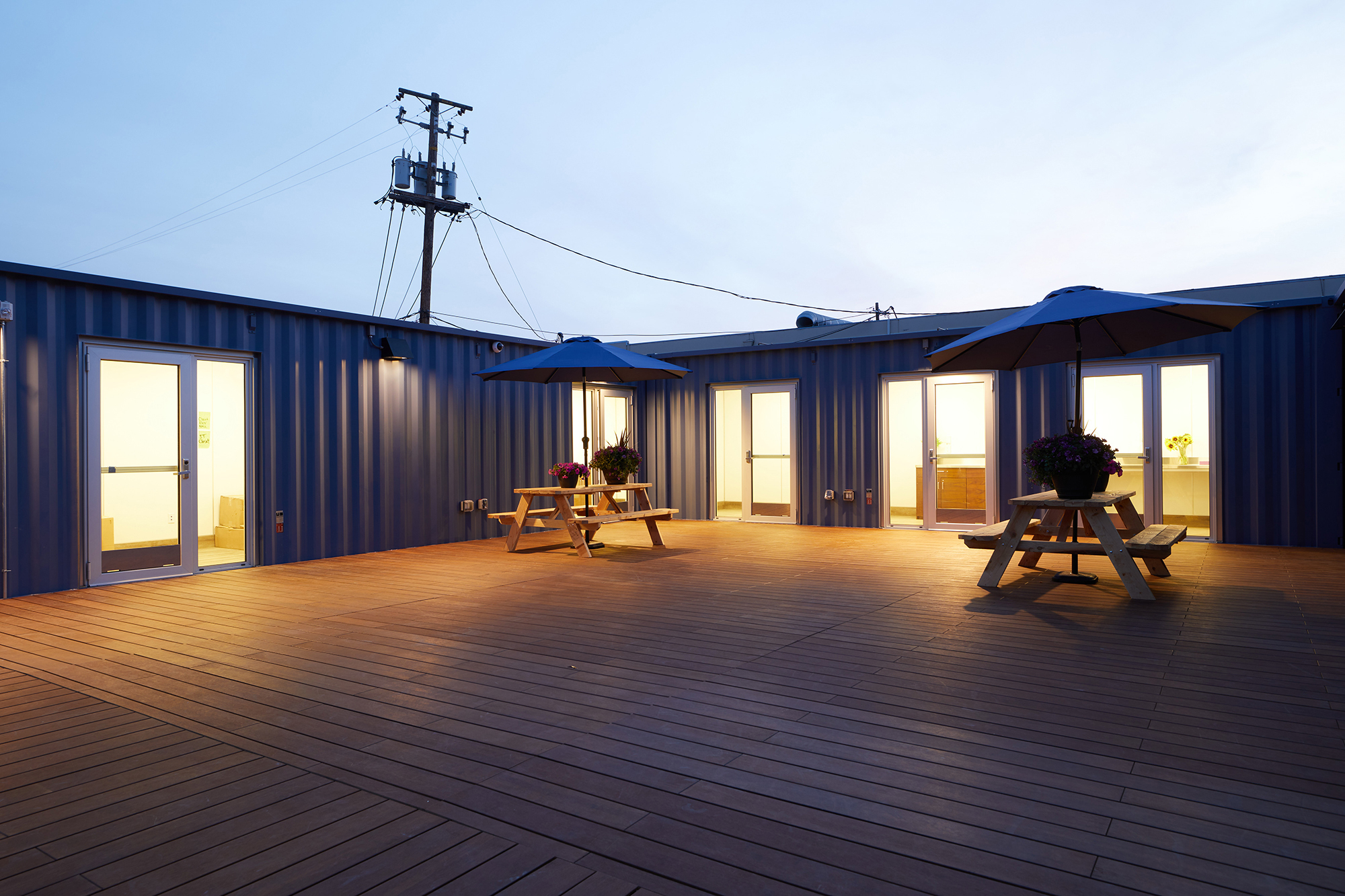When Mountain View opened a new interim-housing complex for homeless residents on Leghorn Street in May 2021, the project was hailed by Santa Clara County leaders and Gov. Gavin Newsom as a model approach to addressing a seemingly intractable problem.
Numerous other cities have since followed suit with their own proposals for interim housing projects that rely on modular units that can be assembled quickly and cheaply and that, in many cases, are funded by the state's Homekey program, which focuses on creating shelter for homeless and extremely low-income residents.
Redwood City secured $55.3 million in Homekey funds in December for a project called Navigation Center that will consist of 240 modular units for homeless individuals. And in early March, the city of Alameda received $12.3 million to construct modular homes for homeless youth on a parcel next to the College of Alameda. Mayor Marilyn Ezzy Ashcraft said her support for the project was inspired in part by her field trip to Mountain View, where she learned about the city's success in constructing modular homes in just six months.
"We just came away saying, 'Wow! It is possible and it is within our grasp," Ashcraft said at a City Council meeting last November, referring to the Mountain View project.
But Palo Alto's attempt to follow its neighbor's lead remains stuck in limbo. To date, the city has not been successful in obtaining funds to build a Mountain View-style shelter at a 1237 San Antonio Road. Paul Dulai, Homekey program manager, notified the city in a Feb. 22 letter that the Bay Area region, which includes Palo Alto, is already "fully subscribed." The city's application, he added, "is still under review and may be funded as funds become available."
While Dulai indicated that the state Department of Housing and Community Development would inform the city in March about availability of funds, the city had not heard back as of early this week. Joanne Price, vice president for real estate and operations at LifeMoves, the nonprofit that operates the Mountain View development and that is partnering with the city for the San Antonio Road project, told this news organization in an April 4 email that the state agency is still evaluating applications and has not notified the nonprofit about potential funding. Deputy City Manager Chantal Gaines also said the city is still waiting to hear back from the HCD, though it expects to learn more about the status of the funding request in the coming days.
Despite the setback, Palo Alto staff and LifeMoves remain hopeful that the project will ultimately get built. Mayor Pat Burt told this news organization in an interview Wednesday that the reason that the city didn't get funding has more to do with the fact that the HCD had received far more applications than it had expected, making the field far more competitive in the second round of funding allocations.
Burt said that if the city and LifeMoves don't get the requested $27 million in Homekey funds in the current round, they will continue to pursue it in subsequent rounds. The consensus between the city and all of its partner agencies is that the plan for San Antonio Road is an "outstanding proposal" and in some ways goes beyond even what Mountain View has done. The Palo Alto project would consist of 88 apartments, including 64 studios and 24 apartments for families. The Mountain View development includes 88 studios and 12 family units. The city, he said, has done exactly what Newsom urged all jurisdictions to do and submitted a serious proposal, which includes contributing land and spending $7 million annually on operations.
Partner agencies are also stepping up. LifeMoves and the county have agreed to contribute $7 million and $6.5 million, respectively, in operating costs, while the The Sobrato Organization has offered $5 million to help with the capital costs.
"Palo Alto came forward with a great project and the state needs to step up and do their share for the very thing they encouraged," Burt said.
The HCD launched the latest round of funding, known as Homekey 2.0, last September, with the intent of giving out $1.45 billion in funding to cities and counties across the state. Of this amount, $787.2 million is based on geographic allocation, with each of California's eight regions getting a share based on their respective populations of homeless and extremely low-income individuals. That fund, which includes about $200 million for the Bay Area, has now been depleted.
In the Bay Area, the HCD has approved funding for 11 jurisdictions under the Homekey 2.0 program. The list includes $22 million for Santa Clara County to purchase and rehabilitate Bella Vista Inn in the city of Santa Clara to create 65 apartments and $18 million for the city of Napa to create 55 apartments for homeless youth in a purchased hotel. Redwood City had two projects approved in the current Homekey round: Navigation Center and the purchase of Comfort Inn and Suites to create 51 rooms for individuals who are currently homeless. San Mateo County, which is spearheading both Redwood City projects, received $16 million for the motel purchase. The HCD is also providing Homekey funds for affordable housing projects in San Francisco, Petaluma, Healdsburg and Larkspur.
With the Bay Area allocations now depleted because of these projects, Palo Alto's best remaining hope is the Homekey program's $196.8-million "discretionary reserve," which the HCD can provide to any project across the state. The agency plans to distribute this money by May 2, when the funding round officially closes.
"The intent is that if there are oversubscribed regions, HCD will have room and flexibility to still award funding to great projects," Angela Marin, section chief at HCD, said at a September 2021 webinar describing the Homekey 2.0 program.
Palo Alto and LifeMoves hope the San Antonio Road project will fit that bill. On March 11, Burt made the case for Homekey funds in a letter to HCD in which called the city's project "very cost competitive" and said that it can be "delivered within the fast time frame the grant requires, is a larger two-story version of the Mountain View model with more family units, and is ready to go."
The project, Burt wrote, would be "the first of its kind in Palo Alto and would provide a breakthrough in transitioning the City's unhoused individuals and families (over 300 as of the 2019 point-in-time count) to eventual permanent housing."
"In a time of having made severe cuts to our staffing and services, the City has committed to contributing valuable city-owned land and a significant share of the operational funding for the project," Burt wrote.
Burt told this news organization that if HCD doesn't provide the funding in the current Homekey cycle, he expects the city will apply again in the next funding round, which kicks off this fall. And given the success of the program to date and California's budget surplus, city officials and LifeMoves believe there will be more funding rounds after that, he said.
He also suggested that the San Antonio project has become even more viable over the past two months as the nonprofit Charities Housing proposed developing a 129-apartment complex at 3001 El Camino Real, the former site of Mike's Bikes. The development, which consists entirely of below-market-rate units, could potentially serve as a permanent shelter for some of the residents in the LifeMoves program.
"There is a great synergy between that project and the LifeMoves project because that project is for very low- and extremely low-income residents, which would include many of the folks who would potentially be transitioning from the short-term housing with the LifeMoves project and have longer-term housing potentially provided by the Charities Housing project," Burt said.




Comments